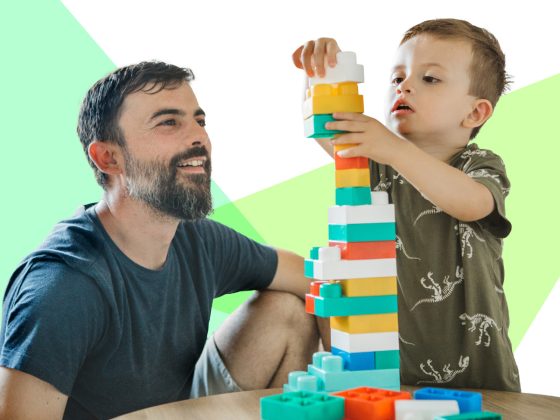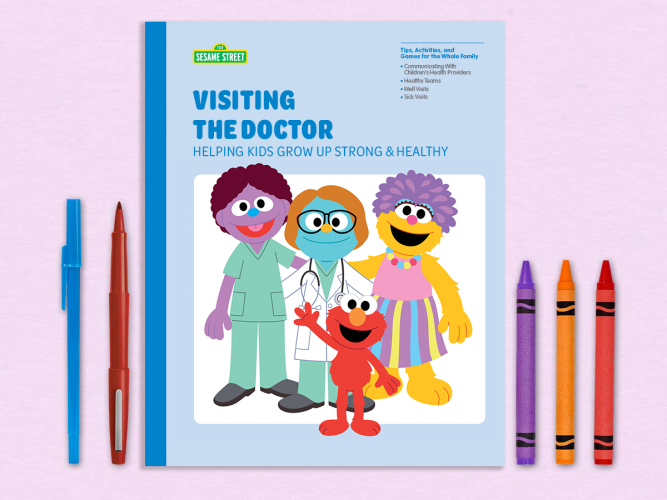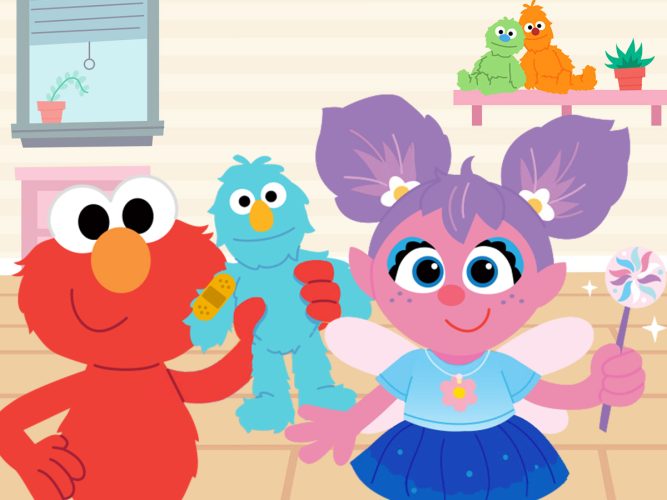
Developmental Milestones
Together with your health care team, you can make sure your little one is on track for growing and thriving.
Milestones are things children can do by a given age, such as crawling, walking, running, and jumping. All children are different, and every child reaches their milestones on a slightly different schedule. Together with your health care team, you can make sure your little one is on track for growing and thriving.
You know your child better than anyone. You are the expert, the bridge to their doctor or nurse. After all, you’re the one who notices the amazing new things they’re learning to do every day (stacking blocks, naming different animals, hopping on one foot, and so on). You’re also the one helping them reach their next milestones by practicing new skills over and over.
Children are naturally curious, and just by following and encouraging their interests and curiosity (“Let’s see how high we can make this block tower!”), you’re helping them try out the new skills which will help them reach their next milestones. During simple daily routines, like chatting with you over breakfast, putting on clothing, and holding a crayon, kids are learning the new skills they need!
Pediatricians have just updated the lists of age-by-age milestones that children should reach by each age. These lists can help parents and doctors talk together about any concerns they have around how children are growing in both body and mind. The earlier these conversations happen, the earlier children can get the extra help they may need.
Regular well-child visits are a great time to talk about milestones. At your child’s next one, you might:
- Share with your doctor a few things you’ve recently noticed your child can do.
- Tell your doctor about some of your child’s favorite activities, games, and routines.
- Talk about your family and community and any concerns about your child’s social and emotional growth.
- Bring a list of questions for your doctor. Has your child “lost” any skills, or are you concerned about any changes in their behavior?
- Be sure you’re clear on any specific recommendations from your doctor or referrals to specialists.
- Schedule your child’s next well visit on the way out, including appointments for vaccinations.

Connecting & Communicating
Communication and connection with families is key to building a strong, effective healthy team.

Visiting the Doctor: Helping Kids Grow Up Strong & Healthy
Preparation and communication help you get the best care for your child at every medical visit.

Communicating at Doctor’s Visits
Good communication leads to good care for your child.

Elmo and Abby’s Check-up Play Date
Pretend play can help children “rehearse” situations that may frighten them.

Rosita’s Favorite
Regular check-ups can be a fun and informative experience for the whole healthy team, kids included!

My Whole Healthy Life: Meet Reignen
A video about the different ways a Native American child and his family stay healthy.

My Whole Healthy Life: Meet Wa.Sta.Tse
A video about the different ways a Native American child and her family stay healthy.
